Nyt työtä minä olen taas katsellut,
pieksun pohjatkin hajalle astellut,
ja kannatkin menneet on lintalleen,
käret silmiini katsoo jo tarkalleen.
Että missähän mahtaa vika taas olla,
ku uusia ei ala jalkoihi tulla?
Kurjalta näyttää aika jo tää,
ja harmaaksi käy taas monen pojan pää.
Vall Streetti se nauraa partaansa,
kun kaikki se on saanu alle valtaansa.
Paavitkin huutaa ny herrassaa,
että kirkotkin ottaa jo kerrassaa.
Bolsevikit musejoita niistä nyt laittaa,
se pappien unta hieman kai haittaa,
kun niiltäki alkaa jo loppua työ,
kai synkältä näyttää kuin syksyine yö.
Jos Enklannin työläiset lakkoontuu,
Yrjö yskäänsä aina sillo sairastuu
ja prinssin horssikin kompastuu
ja nenähänsä joka kerta loukkaantuu.
Sotakorvaukset Saksalla purree jo vatsaa,
Espanja kuninkaansa laitto nyt matkaan.
Ei Ranskassa työttömyys kai haittavi tuo,
maailman rikkaat siellä mässää ja juo.
Setä Sämi se on myös viisas mies,
se pisneksen kyllä hyvin tarkoin ties.
Meillä puhuvat kuvatkin on vallassa,
moni taiteilija on ollu pannassa.
Masina se heitänkin paikkansa otti,
ja työttömät kadulle se tuhansia johti.
Moni soittaja halvalla pillinsä möi
ja lunssina viimeiset tinansa he söi.
Meitä finnoja on täällä Setä Sämin maas
noin viitisen sataa tuhatta.
Täällä me elämme kun taivahas,
vaik moni on tullu tänne luvatta.
Meillä puoluehommat on suuria
on haalit ku Baabelin muuria.
Mones paikassa niitä on meillä jo kuus,
ja riita kun syntyy, niin tehdään uus.
Vaikka repupliikki meitä nyt hallitsee,
silti demokraatti aika se vallitsee.
Kaikki on potkun partaalla,
kyllä odotamme mielellä hartaalla.
Moni poika lyöny on jo rukkaset tiskii
ja juonunna nykyajan huonova viskii,
että töppöset ylös aina keikahtaa
kun viimeisen kerran veisataa.
pieksun pohjatkin hajalle astellut,
ja kannatkin menneet on lintalleen,
käret silmiini katsoo jo tarkalleen.
Että missähän mahtaa vika taas olla,
ku uusia ei ala jalkoihi tulla?
Kurjalta näyttää aika jo tää,
ja harmaaksi käy taas monen pojan pää.
Vall Streetti se nauraa partaansa,
kun kaikki se on saanu alle valtaansa.
Paavitkin huutaa ny herrassaa,
että kirkotkin ottaa jo kerrassaa.
Bolsevikit musejoita niistä nyt laittaa,
se pappien unta hieman kai haittaa,
kun niiltäki alkaa jo loppua työ,
kai synkältä näyttää kuin syksyine yö.
Jos Enklannin työläiset lakkoontuu,
Yrjö yskäänsä aina sillo sairastuu
ja prinssin horssikin kompastuu
ja nenähänsä joka kerta loukkaantuu.
Sotakorvaukset Saksalla purree jo vatsaa,
Espanja kuninkaansa laitto nyt matkaan.
Ei Ranskassa työttömyys kai haittavi tuo,
maailman rikkaat siellä mässää ja juo.
Setä Sämi se on myös viisas mies,
se pisneksen kyllä hyvin tarkoin ties.
Meillä puhuvat kuvatkin on vallassa,
moni taiteilija on ollu pannassa.
Masina se heitänkin paikkansa otti,
ja työttömät kadulle se tuhansia johti.
Moni soittaja halvalla pillinsä möi
ja lunssina viimeiset tinansa he söi.
Meitä finnoja on täällä Setä Sämin maas
noin viitisen sataa tuhatta.
Täällä me elämme kun taivahas,
vaik moni on tullu tänne luvatta.
Meillä puoluehommat on suuria
on haalit ku Baabelin muuria.
Mones paikassa niitä on meillä jo kuus,
ja riita kun syntyy, niin tehdään uus.
Vaikka repupliikki meitä nyt hallitsee,
silti demokraatti aika se vallitsee.
Kaikki on potkun partaalla,
kyllä odotamme mielellä hartaalla.
Moni poika lyöny on jo rukkaset tiskii
ja juonunna nykyajan huonova viskii,
että töppöset ylös aina keikahtaa
kun viimeisen kerran veisataa.
envoyé par Riccardo Venturi - 13/1/2022 - 12:04
Langue: anglais
English translation / Traduzione inglese / Traduction anglaise / Englanninkielinen käännös:
Historia (L. Trans.)
Historia (L. Trans.)
Songs From Here And There
Now I've been looking for work again
The soles of my boots are worn through
And the heels have collapsed
And the shoe tips look into my eyes
Asking: "What's the problem?
Why won't you get new ones?"
Things are starting to look miserable
And many a boy's head turns grey
But Wall Street is laughing up his sleeve
For he has subjugated everyone
Even the popes scream to their lord:
"Now they're taking our churches!"
The Bolsheviks are turning them into museums
I guess that gives the priests insomnia
Now they'll be unemployed too
I bet things look as dark as a fall night
If English workers go on a strike
George always gets a cough
And the prince's horse stumbles
And he hurts his nose every time
War reparations give Germany a stomach ache
The Spanish have sent their king packing
In France they don't care about unemployment
The rich people of the world gorge and drink there
And Uncle Sam is clever too
He knew his business very well
Here even the motion pictures are controlled
And many artists have been excommunicated
The machine replaced them too
And threw thousands of people out into the streets
Many musicians sold their pipes cheaply
And ate their last tins for lunch
There are many of us Finns here in Uncle Sam's land
About five hundred thousand
This place is like heaven to us
Even though many of us came here illegally
We have great political stuff going on
Our dance halls are like the Babel wall
In many places there's six of them
And whenever we quarrel, we build a new one
Though the Republicans rule over us now
It's the era of the Democrats
And we're all about to be fired
We wait for it with great solemnity
Many boys have already given up
And drunken bad modern whiskey
So the felt boots always rise up
When we sing for one last time
Now I've been looking for work again
The soles of my boots are worn through
And the heels have collapsed
And the shoe tips look into my eyes
Asking: "What's the problem?
Why won't you get new ones?"
Things are starting to look miserable
And many a boy's head turns grey
But Wall Street is laughing up his sleeve
For he has subjugated everyone
Even the popes scream to their lord:
"Now they're taking our churches!"
The Bolsheviks are turning them into museums
I guess that gives the priests insomnia
Now they'll be unemployed too
I bet things look as dark as a fall night
If English workers go on a strike
George always gets a cough
And the prince's horse stumbles
And he hurts his nose every time
War reparations give Germany a stomach ache
The Spanish have sent their king packing
In France they don't care about unemployment
The rich people of the world gorge and drink there
And Uncle Sam is clever too
He knew his business very well
Here even the motion pictures are controlled
And many artists have been excommunicated
The machine replaced them too
And threw thousands of people out into the streets
Many musicians sold their pipes cheaply
And ate their last tins for lunch
There are many of us Finns here in Uncle Sam's land
About five hundred thousand
This place is like heaven to us
Even though many of us came here illegally
We have great political stuff going on
Our dance halls are like the Babel wall
In many places there's six of them
And whenever we quarrel, we build a new one
Though the Republicans rule over us now
It's the era of the Democrats
And we're all about to be fired
We wait for it with great solemnity
Many boys have already given up
And drunken bad modern whiskey
So the felt boots always rise up
When we sing for one last time
envoyé par Riccardo Venturi - 13/1/2022 - 12:17
Langue: suédois
Traduzione svedese / Swedish translation / Traduction suédoise / Svensk översättning / Ruotsinkielinen käännös: Juha Rämö
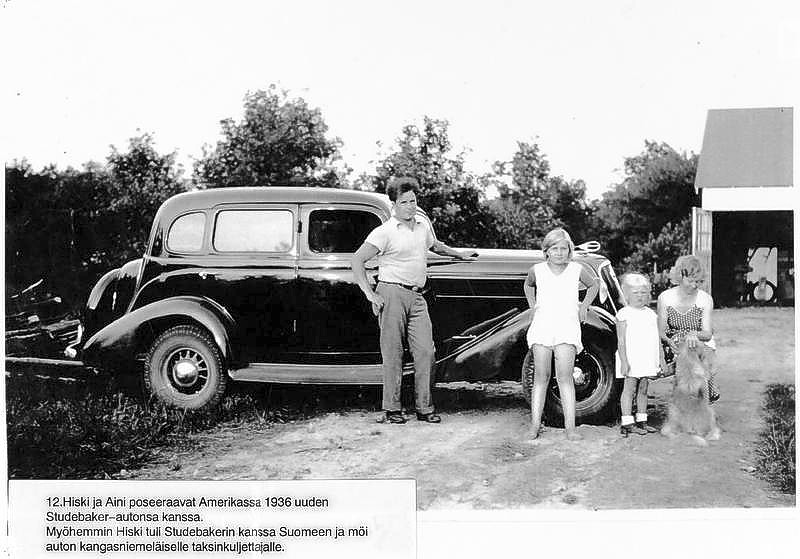

Hiski Salomaa with family and new Studebaker in 1936
VERSER FRÅN HÄR OCH DÄR
Jag har letat efter arbete
och trampat sönder solarna på mina bjäxor
så att klackarna är nedkippade
och spetsarna är riktade direkt i mina ögon.
Vad månne det bero på återigen
att jag inte kan få nya skor på fötterna?
Så eländig är tiden vi lever i
att mången grabb har redan fått grått hår.
Men på Wall Street ler man i mjugg
för att ha fått allt under sin makt.
Påven ropar på sin Herre:
»Gode Gud, nu tar dom bort kyrkorna!«
Och när bolsjevikerna gör dom till museer
är det väl litet dåligt för prästerna att få sömn
för att levebrödet är hotad.
Det ser väl lika dystert ut som en höstnatt.
Om arbetarna i England går i strejk
får kung Georg jämt ett hostanfall
och kronprinsens häst snubblar
och han skadar varje gång sin näsa.
Krigsskadeståndet biter i magen i Tyskland
och i Spanien fick kungen en spark i baken.
Arbetslösheten tycks inte vara till men i Frankrike
där de rika i världen frossar och super.
Onkel Sam han är en vettig man
som vet precis hur man gör affärer.
Hos oss härskar talande bilder
och mången konstnär har svartlistats.
Maskinen har tagit deras plats
och skickat tusentals arbetslösa på gatan.
Mången spelman har slumpat bort sin pipa
och ätit sitt sista tenn för lunch.
Oss finnar finns här hos Onkel Sam
vid pass femhundratusen.
Här lever vi som i himlen
fast många har kommit hit utan tillstånd.
Vårt partivärv är omfångsrikt
och våra Folkets hus som Babels mur.
Mångenstans finns det redan sex av dem
och om det blir bråk, så bygger man ett till.
Fast vi är republikens undersåtar
lever vi ändå i en demokratisk tid.
Alla står inför risken att få sparken
och det gäller att bara invänta fromt.
Mången pojke har redan kastat in handduken
och börjat supa nutidens usla whisky
så att klackarna är högt uppe i taket
när den sista trudelutten ljuder.
Jag har letat efter arbete
och trampat sönder solarna på mina bjäxor
så att klackarna är nedkippade
och spetsarna är riktade direkt i mina ögon.
Vad månne det bero på återigen
att jag inte kan få nya skor på fötterna?
Så eländig är tiden vi lever i
att mången grabb har redan fått grått hår.
Men på Wall Street ler man i mjugg
för att ha fått allt under sin makt.
Påven ropar på sin Herre:
»Gode Gud, nu tar dom bort kyrkorna!«
Och när bolsjevikerna gör dom till museer
är det väl litet dåligt för prästerna att få sömn
för att levebrödet är hotad.
Det ser väl lika dystert ut som en höstnatt.
Om arbetarna i England går i strejk
får kung Georg jämt ett hostanfall
och kronprinsens häst snubblar
och han skadar varje gång sin näsa.
Krigsskadeståndet biter i magen i Tyskland
och i Spanien fick kungen en spark i baken.
Arbetslösheten tycks inte vara till men i Frankrike
där de rika i världen frossar och super.
Onkel Sam han är en vettig man
som vet precis hur man gör affärer.
Hos oss härskar talande bilder
och mången konstnär har svartlistats.
Maskinen har tagit deras plats
och skickat tusentals arbetslösa på gatan.
Mången spelman har slumpat bort sin pipa
och ätit sitt sista tenn för lunch.
Oss finnar finns här hos Onkel Sam
vid pass femhundratusen.
Här lever vi som i himlen
fast många har kommit hit utan tillstånd.
Vårt partivärv är omfångsrikt
och våra Folkets hus som Babels mur.
Mångenstans finns det redan sex av dem
och om det blir bråk, så bygger man ett till.
Fast vi är republikens undersåtar
lever vi ändå i en demokratisk tid.
Alla står inför risken att få sparken
och det gäller att bara invänta fromt.
Mången pojke har redan kastat in handduken
och börjat supa nutidens usla whisky
så att klackarna är högt uppe i taket
när den sista trudelutten ljuder.
envoyé par Juha Rämö - 15/1/2022 - 16:10
Langue: italien
Traduzione italiana / Italian translation / Traduction italienne / Italiankielinen käännös:
Riccardo Venturi, 18-1-2022 21:06
Riccardo Venturi, 18-1-2022 21:06
Canzoni di qua e di là
So' andato cercando ancora lavoro,
Mi si so' sfondate le suole delle scarpe,
I tacchi si son tutti staccati
E le punte stanno tutte all'insù.
Mi chiederai: “E che problema c'è?
Perché non te ne compri un paio di nuove?”
Le cose sembrano andare alla malora
E a più d'un ragazzo i capelli s'ingrigiscono.
Ma Wall Street se la ride sotto i baffi
Perché ha soggiogato tutti quanti.
Anche i papi urlano al loro Signore:
“Ora ci stan pigliando le chiese!”
I Bolscevichi le trasformano in musei
E mi sa che i preti non ci dormono.
Ora anche loro saranno disoccupati
E la veggo buja come un due novembre.
Se i lavoratori inglesi scioperano,
A Re Giorgio gli piglia uno sbocco di tosse,
Il cavallo del principe inciampa
E ogni volta lui si fa male al nasino.
Alla Germania gli piglia il maldistòmaco
Con tutte quelle riparazioni di guerra,
Gli spagnoli hanno spedito via il re,
In Francia non si preoccupano della disoccupazione,
Là i ricconi del mondo s'ingozzano e trincano.
Lo Zio Sam, è parecchio furbo anche lui,
Sapeva far bene i suoi affari.
Qui anche i film sono controllati
E tanti artisti sono stati scomunicati.
Le macchine hanno rimpiazzato pure loro
E hanno spedito sul lastrico centinaia di persone.
Molti musicisti han venduto gli strumenti per una miseria,
E per pranzo si son mangiati le ultime scatolette.
Ci son molti di noialtri finlandesi in Ziosammonia,
Circa cinquantamila.
'Sto paese per noi è come il paradiso,
Anche se molti di noi ci sono entrati illegalmente.
C'è un sacco di roba politica che sta andando avanti,
Le nostre sale da ballo son come la torre di Babele,
In parecchi posti ce ne sono fino a sei,
E quando si lética, se ne costruisce un'altra.
Anche se ora al governo ci so' i Repubblicani,
È l'ora dei Democratici.
Fra un po' ci licenziano a tutti quanti,
Ce lo aspettiamo con gran solennità.
Parecchi ragazzi si sono già arresi
E si so' messi a bere lo uiscàccio de' tempi che corrono,
E così, gli stivali di feltro si scatenan sempre
Quando si canta per un'ultima volta.
So' andato cercando ancora lavoro,
Mi si so' sfondate le suole delle scarpe,
I tacchi si son tutti staccati
E le punte stanno tutte all'insù.
Mi chiederai: “E che problema c'è?
Perché non te ne compri un paio di nuove?”
Le cose sembrano andare alla malora
E a più d'un ragazzo i capelli s'ingrigiscono.
Ma Wall Street se la ride sotto i baffi
Perché ha soggiogato tutti quanti.
Anche i papi urlano al loro Signore:
“Ora ci stan pigliando le chiese!”
I Bolscevichi le trasformano in musei
E mi sa che i preti non ci dormono.
Ora anche loro saranno disoccupati
E la veggo buja come un due novembre.
Se i lavoratori inglesi scioperano,
A Re Giorgio gli piglia uno sbocco di tosse,
Il cavallo del principe inciampa
E ogni volta lui si fa male al nasino.
Alla Germania gli piglia il maldistòmaco
Con tutte quelle riparazioni di guerra,
Gli spagnoli hanno spedito via il re,
In Francia non si preoccupano della disoccupazione,
Là i ricconi del mondo s'ingozzano e trincano.
Lo Zio Sam, è parecchio furbo anche lui,
Sapeva far bene i suoi affari.
Qui anche i film sono controllati
E tanti artisti sono stati scomunicati.
Le macchine hanno rimpiazzato pure loro
E hanno spedito sul lastrico centinaia di persone.
Molti musicisti han venduto gli strumenti per una miseria,
E per pranzo si son mangiati le ultime scatolette.
Ci son molti di noialtri finlandesi in Ziosammonia,
Circa cinquantamila.
'Sto paese per noi è come il paradiso,
Anche se molti di noi ci sono entrati illegalmente.
C'è un sacco di roba politica che sta andando avanti,
Le nostre sale da ballo son come la torre di Babele,
In parecchi posti ce ne sono fino a sei,
E quando si lética, se ne costruisce un'altra.
Anche se ora al governo ci so' i Repubblicani,
È l'ora dei Democratici.
Fra un po' ci licenziano a tutti quanti,
Ce lo aspettiamo con gran solennità.
Parecchi ragazzi si sono già arresi
E si so' messi a bere lo uiscàccio de' tempi che corrono,
E così, gli stivali di feltro si scatenan sempre
Quando si canta per un'ultima volta.
Dear Admin,
The original lyrics above include some flaws which I have corrected. Can you please replace the existing songtext ?
[...]
The original lyrics above include some flaws which I have corrected. Can you please replace the existing songtext ?
[...]
Juha Rämö - 15/1/2022 - 16:08
×
![]()

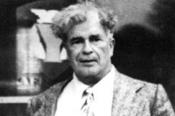
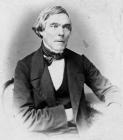
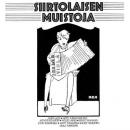

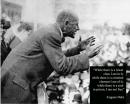
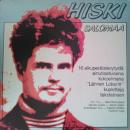
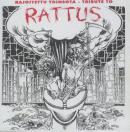

Testo e musica / Lyrics and music / Paroles et musique / Sanat ja sävel:
Hiski Salomaa (Hiskias Möttö, Kangasniemi 17-5-1891 – New York 7-7-1957)
In the first half of the 20th century, there was a lively interaction between American Finns and Finnish musicians and performers of the time. The duo Tatu Pekkarinen and Afu Tanner toured the Americas. In the USA, Columbia and RCA recorded Finnish performers and distributed records to immigrant audiences. One of these was Hiski Salomaa.
The childhood of Hiski Salomaa (original name: Hiskias Möttö) is described by researcher Juha Niemelä. “Anna Leena Möttö gave birth to a son on May 17, 1891, whose father was known to be Ananias Romo, the husband of Anna Leena's sister Amanda. The son was named Hezekiah after the Old Testament king.” At first, Anna Leena settled with her son in a small smokehouse for her sister and Romo, in the Tipsalo croft near Kangasniemi.
Hiski Salomaa, who emigrated to America in 1909, became a popular performer in the halls and made a number of recordings for Columbia in 1927, initially accompanying himself only with his accordion. Hiski Salomaa recorded a total of 18 songs about the life of an immigrant, usually as humorous descriptions. Hiski Salomaa's best known song, Lännen lokari, describes a logger's life.
It was not until the 1950s that Hiski Salomaa was first known in Finland, when Pekka Tiilikainen played Lännen lokari as the motto of the program, until the director general of the radio, Hella Wuolijoki, cut the record and put it a short ban on it. Hiski Salomaa was somewhat prosperous in his American years and toured Finland in his '52 -’53 “Yankee car”. In Finland, Hiski Salomaa is known to have appeared only once in the wife's hometown of Vehmaa. Several trips were made there and to Hiski's hometown Kangasniemi.
Juha Niemelä, who studied migratory music, describes Hiski Salomaa as having a very lively. Hiski and his wife Aini lived in the upper reaches of lake Michigan (the only area where Finnish is also spoken by locals), Rhode Island and New York. During World War I, Hiski Salomaa showed pacifist ideals and acted as a conscientious objector in Calumet, Michigan, for less than a year. Hiski was mainly a supporter of the working-class idea, and this idea is heard in songs such as Vapauden kaiho (Longing for Freedom) and this Värsyjä sieltä ja täältä (Songs from Here and There), written in the years of the Great Depression and dealing with world politics. However, Hiski was fit to perform for all kind of ideals.
Niemelä says: "Although Hiski appeared extensively in the United States (Labor Union) at IWW events and was also a member of this organization, the controversy among the Finnish trade unionists seemed to have harassed him to such an extent that he preferred to avoid this topic in Finland. He praised the Republicans, who did not wage wars at the time. "
Hiski left for the United States at the age of 17 after his mother died. Niemelä describes the young man's difficulty getting to the country on a long trip. "In the autumn of 1909, many passengers left Kangasniemi for the golden lands of the West, including young Hiskias Möttö. Hiski seriously risked to be stopped in Hull, where the authorities were trying to turn him back, suspecting that the frail-looking young man was not fit for work. In America, Hiski first worked as a tailor, setting up his own tailor shop in 1924, which later employed several seamstresses. It was at this point that he changed his family name to Salomaa and married Aini Saari, a pretty Finnish girl from Vehmaa, who then also worked as a tailor.” [RV]